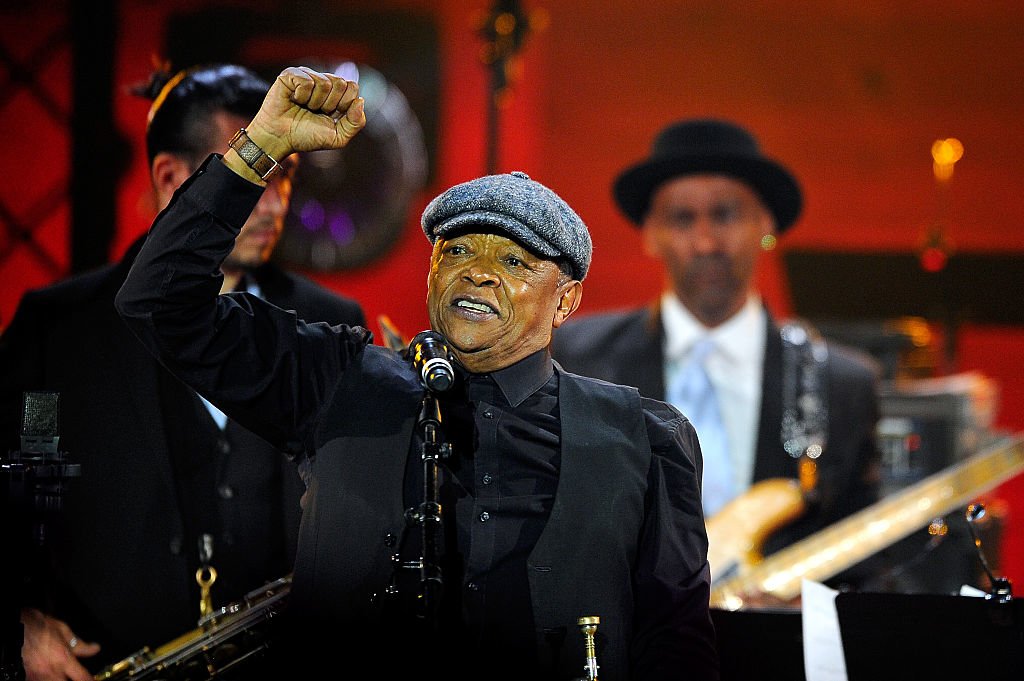Hugh Masekela, trumpeter and anti-apartheid activist, dies at 78

Hugh Masekela, famed South African trumpeter whose music became a worldwide symbol of the movement against apartheid, died at the age of 78 on Tuesday.
Dreamcatcher, an agency that represented him, confirmed the news, according to the New York Times.
Masekela rose to fame in the 1950s when he was a member of the Jazz Epistles, helping to pioneer the South African jazz movement alongside other greats like pianist Abdullah Ibrahim. He moved to the United States in 1960 and became an international star, using that clout to take up the cause of anti-apartheid on a much bigger stage.
While his biggest hit was “Grazing in the Grass” in 1968, he became known for his anthems against apartheid and his unique voice. His songs like “Stimela (Coal Train),” “Mace and Grenades” and the anthem “Mandela (Bring Him Back Home),” all amplified his country’s plight in the 1980s.
“Song is the literature of South Africa”
Hugh Masekela continued to expand his activism, working with other musicians across Sub-Saharan Africa and founding the Botswana International School of Music to help children to get a musical education.
His activism was not to be ignored, though his “Graceland” tour was banned from South Africa. He traveled to countries near South Africa instead, often playing his “Mandela (Bring Him Back Home)” tribute to raised fists.
Eventually, Masekela did move back to South Africa in the year 1990, the same year that Mandela was released from prison.
He received the the Order of Ikhamanga in gold, South Africa’s highest medal of honor, in 2010 and continued to tour the world into his elder years.
“I was marinated in jazz, and I was seasoned in music from home,” he said in a 2009 interview with the Australian Broadcasting Corporation. “Song is the literature of South Africa.”
“There’s no political rally that ever happened in South Africa without singing being the main feature.”
Music legend Hugh Masekela will be missed but his music will live on.
**Update** Masekela’s son Sal has issued a statement on his father’s passing:
It is with heavy heart that I share that my father, Hugh Ramapolo Masekela, has hung up his horn after a long battle with prostate cancer. He was able to do so both at peace and surrounded by family in Johannesburg, South Africa. It is difficult to comprehend that this moment is real. To me, my father has always been both ageless and immortal.
Of the countless shows I had the honor of watching my dad perform, each felt like the first, each felt brand new. At the age of 5 he first introduced me to the late night halls of Manhattan’s The Village Gate and Mikell’s, where he would steal the hearts and souls of innocents with a musical storytelling all his own, passionately and relentlessly transporting them to the farthest reaches of Africa with both voice and trumpet. It was these moments and his choosing to take me around the globe any chance he got, that would come to shape my entire world view.
As a product of the meticulously designed apartheid regime of 20th century South Africa, my fathers life was the definition of activism and resistance. Despite the open arms of many countries, for 30 years he refused to take citizenship anywhere else on this earth. His belief too strong that the pure evil of a systematic racist oppression could and would be crushed. Instead he would continue to fight.
He was right. To know Hugh Masekela was to know no matter class, creed, color, religion or any other made up distinctions, he stood with empathy and compassion, locked arm in arm with the distressed, displaced and downtrodden everywhere and anywhere on this planet. He carried a deep seeded belief in justice, freedom and equality for all peoples to the very end. He scoffed at the futile idea of borders defining humanity. Even more than all of that, it was his undying and childlike love for South Africa and the entire African continent; with its dizzying displays of natural beauty, music, art and culture that mesmerized me more than anything.
He was beautifully obsessed with showcasing the endless magic and pageantry of African peoples to a western obsessed world. After a recent trip to Tanzania caused me to share with my dad that my heart was full, he simply said this to me, ‘I can give you my heart to take in the overspill’.
